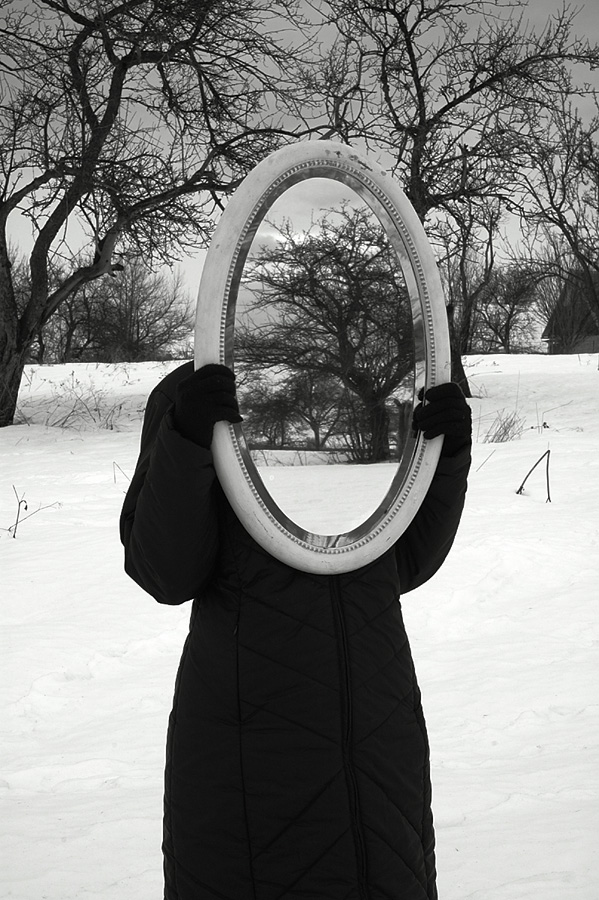FWP:
SETS
IDOL: {8,1}
MIRROR: {8,3}
On the whole, the commentators simply paraphrase the verse as Nazm and, following him, Bekhud Dihlavi do; or attempt to 'normalize' it as Bekhud Mohani does with his vision of the lover using his fingers to try to arrange his hair in a more socially acceptable style.
But it's really a much stranger verse than they acknowledge. Somebody unspecified has told the lover, perhaps reproachfully, that he is 'self-regarding'-- and here we're lucky that the English term can capture both the literal ('looking at oneself') and the metaphorical ('vain, self-centered') senses of the Urdu-- and 'self-adorning' (see the definitions above). The lover concedes the point, and then explains that such behavior is only an appropriate, or even perhaps unavoidable, response to his situation: 'an idol with a mirror-face' is seated before him. Here are some of the possible implications of this wildly un-visualizable metaphor:
=The beloved is obsessed with self-regard and self-adornment-- she uses a mirror so constantly (on this see {98,9}) that it's almost part of her face; so why shouldn't the lover too-- either out of pique, or out of devoted imitation-- show the same attention to his own appearance?
=The beloved's face (or forehead) is so bright, clear, and radiant that it has the reflective power of a mirror, so the lover uses it as such: naturally he's inclined to primp and preen.
=The beloved's face is like a 'mirror' to the lover, and she's like another 'self'-- so that when he looks at her, or at his own face in her 'mirror', he is, in effect, 'self'-regarding; when he straightens a lock of either her hair or his own, he is 'self'-adorning.
=The beloved is seated before the lover as an 'idol', and an idol is a 'mirror' of the desires, longings, and preoccupations of its worshippers; so when he gazes at the idol and prepares for worship, he is really doing these formalities before a 'mirror' that reflects his own 'self-regard' and 'self-adornment'.
=Even when the lover tries desperately to reach through to the Divine power behind the veil of this phenomenal world, he is always thwarted: the worship and attention he seeks to offer to the Deity always bounces off the interposed 'mirror' and 'idol' of this physical world within which he is confined, so that he ends up in despair: he's always helplessly 'regarding' and 'adorning' nothing but himself.
The only other verse in the divan that mentions an 'idol with a mirror-face', {22,3}, gives the image a more clearly metaphysical twist: the 'idol with a mirror-face' may not seem definitely to be God, but certainly doesn't sound like a human beloved either. Compare also {347x,4}, in which a face-to-face mirror is indispensable for existence.
For other verses about 'self-regardingness', see {22,2}.
Note for grammar fans: If you're interested in bai;Thaa hai versus bai;Thaa hu))aa hai , see {115,2}. And notice that the second huu;N in the first line is the future subjunctive, from the future huu;Ngaa (or ho;Ngaa ; this form is so rarely heard that opinions differ about how to pronounce it).
Compare Mir's equally enigmatic counterpart verse: M{120,2}.

Nazm:
That is, if a mirror-faced one like you would be before me, then why wouldn't I be self-regarding, and then why wouldn't I practice self-adornment? (235)
== Nazm page 235